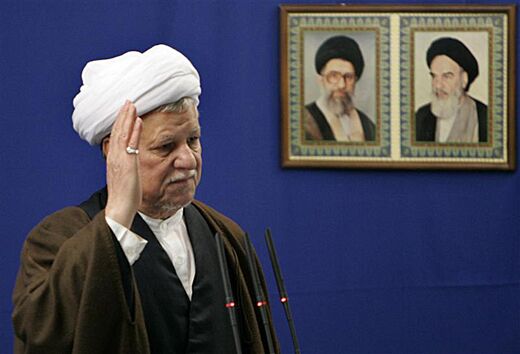
Rafsanjani Elected Chairman of Iran’s Assembly of Experts
Ali Akbar Hashemi Rafsanjani was elected chairman of Iran’s Assembly of Experts on September 4. The Assembly of Experts elects and oversees the supreme leader of the nation. This places the powerful cleric in prime position to take on the mantle of the country’s top leader.
Rafsanjani, who has served as deputy chairman of the Assembly of Experts (AoE) for several years, heads what is termed the pragmatic conservative faction in Iran, which is closely aligned with Supreme Leader Ali Khamenei. He has held the office of president for two terms (1989-97) and is currently chairman of the Expediency Council, the country’s most powerful government oversight body. In 2005, Ayatollah Ali Khamenei gave Rafsanjani oversight of the executive, judicial and legislative branches of government.
“Rafsanjani’s election as AoE chairman makes him the most influential man in the history of the Islamic Republic—perhaps second only to the founder of the Islamist regime, Ayatollah Ruhollah Khomeini,” Stratfor reports (September 4).
With Khamenei in failing health, a new supreme leader will have to be chosen soon. There appears to be little standing in the way of Rafsanjani assuming this post—except, perhaps, his own advanced age.
Rafsanjani’s reputation as a more moderate, pragmatic conservative has some expecting he may steer Iran away from radicalism. Such hopes are misplaced. Although he might put a slightly different face on the Islamic Republic, if Rafsanjani, who is a close confidant and senior adviser of Khamenei, becomes the next supreme leader, we should expect a continuation of Iran’s current goals.
The so-called moderates and the hardliners in Iran have precisely the same ambitions for their nation: domination of the Middle East, development of nuclear power, and the downfall of the United States.
Even a cursory glance at Rafsanjani’s history reveals a man who is anything but moderate. Rafsanjani was a pillar of the 1979 Islamic Revolution, and while serving as president he actively and openly supported terrorism around the world and spent billions to rebuild Iran’s military. Under his watch, Iran acquired missiles and nuclear hardware and stockpiled chemical weapons.
In a 2003 interview, Rafsanjani revealed his views on America’s presence in the Middle East: “Even though the United States has a physical presence in the countries that surround us, the reality is that the United States is in fact surrounded by Iran. … Our enemies such as Saddam, the Taliban and the Monafeghins [an Iranian opposition group] have been swept out of our way, and soon the U.S. will be too” (Agence France Presse, Sept. 11, 2003; emphasis ours).
Should Rafsanjani become supreme leader, we should not expect Iran to take a path more closely aligned with U.S. interests. In the meantime, in the powerful posts he now holds, watch for him to guide Iran in consolidating its gains in Iraq.
